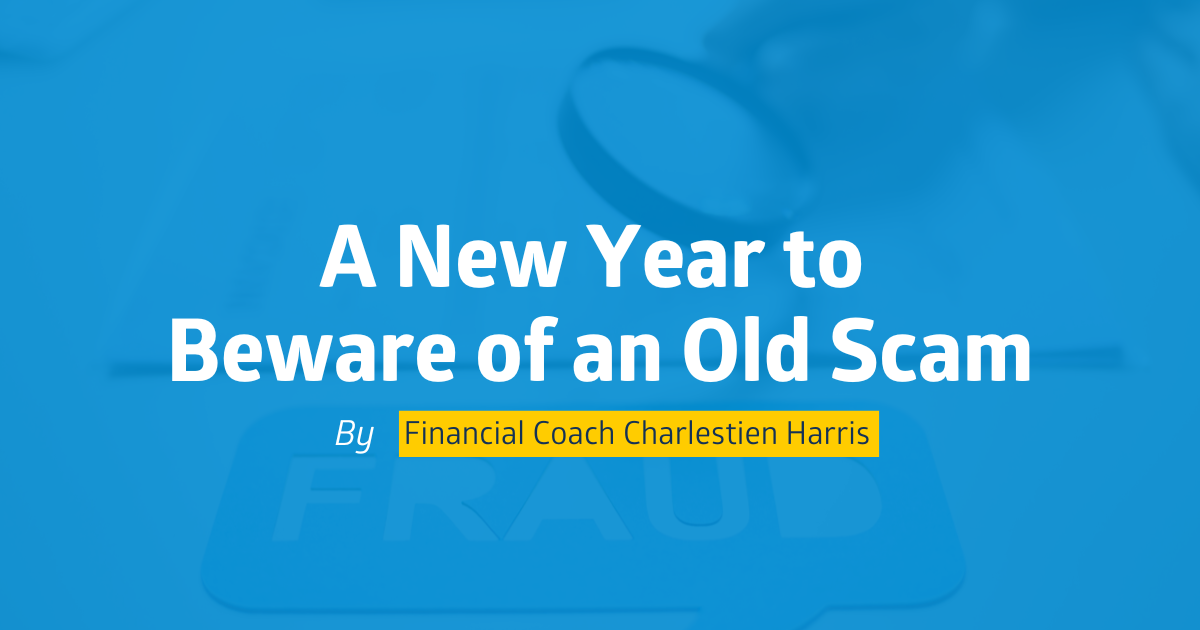By Charlestien Harris
Happy New Year to those of you I have not greeted!
Unfortunately for us consumers, scammers are always busy trying to get something for nothing! Real estate property title scamming is not new, but it happens more often than you think. Some of you may not have heard of this scam, and yet others of you may have become unsuspecting victims.
Quite simply explained, title fraud happens when criminals, otherwise known as title pirates, file fake documents to improperly transfer the title to properties they don’t own. The title to a specific property is used to track legal ownership, and when someone transfers the title to themselves, they become the legal owner of record. This type of crime often happens when someone files a fraudulent deed with the local county office. This may involve forging signatures or even the use of artificial intelligence. These crimes often target properties that are free of loans and owned by absentee owners or by others who may not closely monitor their property records. Once the criminal gains fraudulent control of the title, they will try selling the property to unsuspecting buyers, securing loans against it, or renting it out to someone. The legitimate owner is often completely unaware of the fraud until they face an eviction notice or discover liens taken against their properties, at which point they face a significant legal battle to reclaim their rights.
Here are some suggestions to help you prevent yourself from becoming a possible victim of this type of fraud:
- Make sure you have title insurance. It’s critical to have title insurance to protect against scams that could cost you big bucks! When you buy a property, your lender will probably require lender’s title insurance to protect them, but you should also get owner’s title insurance to protect yourself. When you buy an owner’s title insurance policy, the insurer checks to make sure there is nothing wrong with the title and that the chain of ownership is clear. They can also provide insurance, so if it turns out something is missing, you aren’t out any money. Title insurance policies typically protect against impersonation or forgery, so if it turns out that scammers have altered the title of the property you bought or own, you’ll have an insurer to help you cope with legal costs and avoid losses.
- Be proactive. Protect your personal information. Scammers often use the internet or other more elaborate means to collect personal information about people to impersonate them and steal their property. Be careful whom you share personal details with and ensure your internet and online accounts are secure. Online safety is a must! If you answer an unknown call and talk to a stranger who claims they are calling from the government or another organization, hang up the phone. Look up the number of the business or government agency yourself and call back to see if it was a legitimate call. Never give out any personal information over the phone to unsolicited callers! Some scammers also disguise themselves by using look-alike websites, letterhead, and other technological tools to gain valuable personal information.
- Check the status of your property deed. ANYONE can check local registries or the county recorder’s office for land records and property deeds online in the United States. Try to check your deed’s status regularly to ensure no one is trying to take over your ownership rights. If possible, set up notifications at the county clerk’s office and register to alert you to any changes. If this service is not offered in your area, there are some credible services available that will monitor your property for a nominal fee. Again, make sure you understand all the details of the contract before you sign up for the service and make sure it will cover the issue you are trying to avoid.
- Five signs you’re the victim of deed theft. There are some telltale signs that fraud may have occurred that you need to monitor. Acting fast is crucial if you think you’ve fallen victim to any fraud. Try to take action as soon as you notice something suspicious before criminals can do too much damage. Look for these warning signs:
-
- You stop receiving your water bill or property tax assessment or bill.
-
- Utility bills on a vacant property rise suddenly, or you find people living there.
-
- You stop receiving your tenants’ rent payments and learn that they’ve been making the payments to another person and location.
-
- You receive payment books or other information from a lender with whom you haven’t done business.
-
- You find yourself in default on a loan or notified of foreclosure proceedings.
By following these tips, you can keep your home safe. Since your home may be your most important and most valuable asset, it’s well worth the time and effort to do everything you can to keep your personal information safe.
For more information on this and other financial topics, feel free to contact me at 662-624-5776 or email me at Charlestien.Harris@banksouthern.com.
Until next week – stay financially fit!
